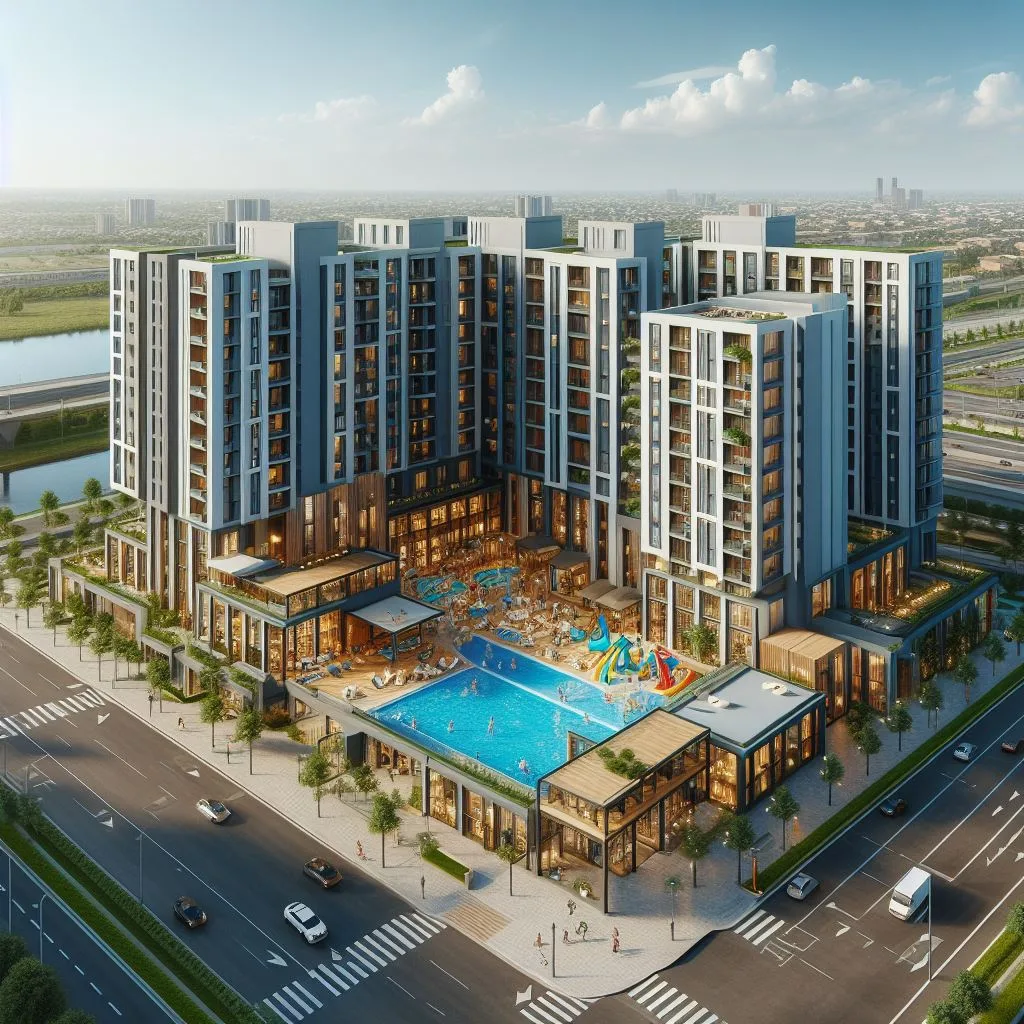In the urban landscapes of South Korea, the process of redevelopment plays a pivotal role in shaping the future of cities, transforming aging neighborhoods into vibrant, modern communities. Central to this transformative endeavor are the homeowner associations, groups of property owners who collectively initiate and drive redevelopment projects forward. This model, deeply ingrained in South Korea’s approach to urban renewal, seeks not only to enhance housing quality but also to revitalize urban areas to meet contemporary standards of living and sustainability.
However, the path to urban rejuvenation is fraught with complexities. The reliance on homeowner associations to spearhead redevelopment efforts introduces a spectrum of challenges that call into question the efficacy and fairness of this model. Financial constraints often place these associations in a position where they must depend on construction companies for support, creating potential conflicts of interest and compromising the integrity of redevelopment projects. Furthermore, the current approach tends to prioritize private gains over public welfare, overlooking the broader implications for community interests, environmental sustainability, and equitable development.
This juxtaposition of private interests and public welfare at the heart of South Korea’s redevelopment paradigm prompts a critical examination of its long-term viability and impact. Drawing inspiration from international models, such as Germany’s public interest-oriented approach to redevelopment, there is a growing consensus that a shift toward more inclusive, transparent, and equitable practices is imperative. By reimagining the foundations of redevelopment to prioritize the collective good, South Korea can pave the way for urban development that truly serves the needs and aspirations of its communities.
Challenges Faced by Homeowner-Led Redevelopment
In South Korea, the practice of homeowner associations spearheading redevelopment projects has presented several unique challenges, from financial limitations to disregarding broader public interests and navigating legal and social complexities.
Financial Constraints and Dependency on Construction Companies
One of the primary hurdles is the significant financial burden placed on homeowner associations, who often lack the resources necessary for redevelopment. This financial gap forces associations to seek support from construction companies, which in return, secure rights to future construction projects. This arrangement can lead to compromises on project quality and objectives, as construction firms may prioritize profit over community needs or sustainable development practices.
Overlooked Public Interest and Community Impact
The focus on homeowner associations and their partnerships with private developers often sidelines broader community interests. Projects driven by private gains can neglect the social, environmental, and urban planning aspects crucial for sustainable development. This model can result in redevelopment outcomes that serve a limited group of stakeholders while potentially harming the collective welfare of the community, including issues related to environmental degradation, social inequality, and displacement of residents without adequate compensation or relocation strategies.
Legal and Social Challenges
Redevelopment initiatives led by homeowner associations face a complex legal landscape, characterized by property rights disputes, compensation battles, and regulatory hurdles. Furthermore, these projects can engender social opposition from residents who feel their interests and rights are being overlooked or threatened. Community resistance can stem from concerns over forced evictions, loss of heritage, and the alteration of neighborhood character, leading to prolonged conflicts and delays in project implementation.
Comparative Insight: Lessons from Germany
Germany’s approach to redevelopment, characterized by a strong emphasis on public interest, presents a compelling model for South Korea. Unlike the South Korean model, where homeowner associations and private developers lead redevelopment efforts, Germany employs a more inclusive, government-led strategy. This approach integrates comprehensive planning, public funding, and stakeholder participation, aiming to ensure that redevelopment projects benefit the broader community and contribute to sustainable urban growth.
In Germany, local government entities play a pivotal role in initiating and managing redevelopment projects. This model leverages comprehensive urban planning and public funding to address citywide goals, such as improving housing quality, enhancing public amenities, and preserving cultural heritage. The involvement of public institutions ensures that redevelopment projects align with broader urban development strategies and public welfare objectives.
The German model offers several advantages. Firstly, it fosters sustainable development by ensuring that projects adhere to environmental standards and contribute to the balanced use of urban spaces. Secondly, the approach enhances social equity by prioritizing affordable housing and preventing the displacement of residents. Thirdly, it promotes participatory governance by involving community members in the planning process, ensuring that projects reflect the needs and preferences of local residents.
Adapting aspects of the German model could address many of the challenges faced by South Korea’s current redevelopment practices. By increasing the role of public institutions in redevelopment projects, South Korea could ensure more transparent and accountable processes. Additionally, incorporating comprehensive planning and public funding mechanisms could help balance economic, social, and environmental objectives, leading to more equitable and sustainable urban development outcomes. Promoting community participation in the redevelopment process could also mitigate conflicts and build consensus around project goals.
Proposed Solutions for South Korea
To address the challenges associated with homeowner-led redevelopment projects in South Korea and move toward a more equitable and sustainable model, several strategic solutions can be proposed, drawing on both domestic insights and international best practices.
A significant shift toward enhancing the public sector’s involvement in redevelopment projects could provide a more balanced approach. This includes the establishment of comprehensive guidelines for public participation in planning processes, ensuring projects align with broader community interests and urban development goals. Additionally, public funding mechanisms should be expanded to reduce the dependency on private developers, thereby minimizing conflicts of interest and promoting projects with long-term benefits for the community and the environment.
Implementing structured mechanisms for community involvement in the redevelopment process is crucial. This could involve the formation of community advisory boards, public forums, and regular consultations with residents throughout the project lifecycle. By doing so, redevelopment can become a more inclusive process that respects and incorporates the voices and needs of all stakeholders, including those potentially affected by displacement or other adverse impacts.
Specific policy changes are necessary to support a more public interest-oriented redevelopment approach. This could include revising existing laws to strengthen protections for residents in redevelopment areas, ensuring fair compensation and relocation options for displaced individuals, and introducing stricter environmental and social impact assessments for redevelopment projects. Furthermore, policies should encourage sustainable urban growth, such as green building standards and the preservation of historical and cultural sites.
To foster an environment where public interest and sustainable development are at the forefront of redevelopment efforts, South Korea could benefit from a multifaceted approach that combines increased public sector involvement, community participation, and legislative reform. Such an approach would not only address the current challenges but also pave the way for a more vibrant, equitable, and resilient urban future.
As South Korea continues to face the complexities of urban redevelopment, it’s evident that a more inclusive, sustainable, and equitable approach is necessary. The current model, heavily reliant on homeowner associations and private developers, often overlooks broader public interests, leading to projects that may not fully serve the community or contribute to long-term urban sustainability. The challenges associated with this model, including financial constraints, lack of public interest consideration, and legal and social hurdles, highlight the need for significant reform.
Drawing inspiration from the German approach to redevelopment, which emphasizes public involvement, comprehensive planning, and a strong focus on community benefits, South Korea can learn valuable lessons. By adopting similar strategies, such as strengthening the public sector’s role in redevelopment, enhancing community participation, and enacting policy and legislative reforms, South Korea can address the current challenges head-on.
In conclusion, it’s crucial for policymakers, community leaders, and citizens to work together toward a redevelopment model that balances economic development with social equity and environmental sustainability. By doing so, South Korea can ensure its urban redevelopment efforts not only improve the physical landscape but also enhance the quality of life for all residents.



